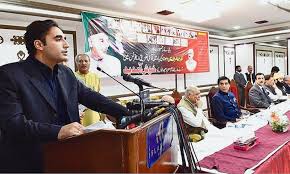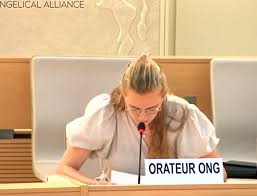18th amendment is the way forward: Bilawal Bhutto

Lahore: Chairman Pakistan People’s Party Bilawal Bhutto Zardari took part in a dialogue on the topic of 18th amendment in the constitution and Federalism at LUMS University Lahore on Friday.
He said that Pakistan is a country where people are from diverse background and federalism was system which suits best the countries like us. We tried one unit as well but unfortunately we lost half of our country.
After the dictatorship of General Ziaul Haq, our constitution was the only constitution which had a name of a dictator in it. So it was 2010 we reached consensus on amendments and all democratic parties reached consensus for amendment.
While talking about the 2010 consensus, he said that no one else could do it and lots of political parties and dictators tried to reach that consensus even through handpicked parliaments.
He said that along with 1973, 2008 was also a traumatic year for Pakistan and we have a confidence and stability now that we did not in 2008 and the 90s. At the time, the entire country was suffering terrorist attacks and my own mother was assassinated along with
riots all over while magazines proclaimed Pakistan as the most dangerous country in the world. I think these traumas encouraged political parties to sit together and reach a consensus.
Today we take devolution for granted and we tend to forget that the concept of nationalist movements and separatism movements were second only to terrorism in Pakistan, he said. If you had a headline about bomb blasts from extremists you also had a follow up headline about Pashtun nationalism movements and Baloch nationalism. I am not saying that those issues have gone away, but these challenges to the state of Pakistan have been addressed through devolution and the 18th amendment.
When asked about the most consequential changes that the 18th amendment brought, he said that the right to education, right to information and the right to fair trial were not a part of constitutional rights until the 18th amendment. Restoration of parliamentary supremacy, along with that the 18th amendment offered a fairer system of appointing judges in Pakistan which included a parliamentary committee, with members of the government and opposition and reputable members of the bar association.
He added that the passing of the 19th amendment was frankly caused by the judiciary blackmailing the government, as had we not done that the entire 18th amendment would be called into question. This unfortunately does not move us far away enough from a judicial system of appointment that forms a judiciary of the judiciary by the judiciary.
It’s a fallacy that the bureaucrats in Islamabad are in a better position than those that are closer to the people that elect them. Can we say that labour rights, education and healthcare pre 18th amendment were in a better position than today?
What allows this argument to take place is the fact that not all provinces have had the same commitment to devolution, have not followed the same path because obviously there were legislations that were supposed to follow up. Devolution was supposed to get into effect by 2015 and we saw an apathetic government at the time but now we see a hostile government.
No matter what the federal government wants, they cannot go after your education and your healthcare. That is a responsibility of the provincial government.
We can argue about the power and scope and how much local government set ups should have, there is absolutely room for improvement in Sindh as well but I would just like to state that the only province in the country with a local government in place is the Sindh province.





